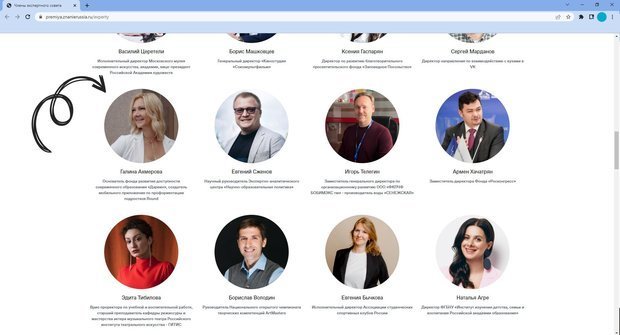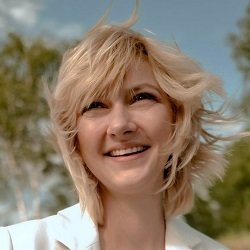Galina Akhmerova: ‘It is necessary to speak with teenagers not only a common language, but also on equal terms’

The country is preparing for the regional stage of the League of Lecturers — a large-scale competition of Znanie Russian Society for educators, in which anyone can try their hand as a lecturer. The participants' face-to-face lectures will be held at different venues in the country. The team of the Darwin Tatarstan foundation for the development of accessibility of modern education also works in the Expert Council of the competition and the award of the same name. Its founder, former top manager of BARS Group and creator of the Round platform Galina Akhmerova, in another author's column for Realnoe Vremya, tells why this work with young people is so relevant today.
The Darwin Foundation is actively working with the Russian society Znanie: our employees are members of the Expert Council of the League of Lecturers competition, and I am a member of the award of the same name.
The award is relevant: young people really have a request for educational content. Now guys who are passionate about science, technology, sports and history are most often looking for information on the Internet: they mostly turn to YouTube. It is simple, clear and accessible.

But here the question arises about the verification of knowledge: the consequences of the development of marketing fraud are affected.
Teaching and learning is one of the important needs of the new generation. Peer-to-peer format (from person to person) is best developed among schoolchildren. We saw it by the example of our work: interacting with teenagers, it is necessary to speak with them not only in a common language, but also on equal terms. Only then will you be recognised and, perhaps, they will listen to your words. Communication should be built not from a position of strength and superiority, but on the basis of respect and interest in each other.
We give employers such authority in the eyes of schoolchildren: last year, we held the Prointerest career guidance festival with the largest companies of the Republic of Tatarstan (Tatneft, KAMAZ, Ak Bars Bank, TTS and others) and attracted about half a million teenagers to the project. We want to repeat the success in the Khanty-Mansi Autonomous Okrug and Lipetsk Oblast, which have recently concluded cooperation agreements with us.
The Znanie Award evaluates the achievements of Russian enlightenment figures from various fields: from teachers and companies to bloggers and the media. And the winners are both educators and educational projects or companies themselves. Among the evaluation criteria: social significance, scale and coverage, uniqueness. Last year, the winners were Bolshaya Peremena and Tochka Kipeniya — projects already beloved by young people.
As a member of the expert council, I evaluated works in the nominations “History” and “Culture and Art”. Main directions: patriotic education and culture of Russia. The applicants have a similar agenda, so it was surprising to see projects dedicated to popularising the culture and history of the Russian Federation beyond its borders. Some are related to the methodology on the topic.
As for the implementation, the applicants, in my opinion, do not use all the possibilities of the figure. Subjectively, the project lacks formats: I would like to see presentations, webinars, brochures, etc. The topics are disclosed in detail, but are not designed for a mass audience: they can be broadcast in offline format or by means of replication in narrow-profile media (for example, the release of material in a magazine).

The current challenge is the unification of educational thought and digital technologies, on which companies, the state and society should work together.
Now Znanie is a full-fledged channel for speakers engaged in education in various fields. And they are evaluated by the same multidisciplinary experts, and for us such work is an opportunity for growth and inspiration within the framework of our business goals.
The next step is the jury voting and face-to-face pitching of the nominees. I will be happy to wait for the people's online voting, when everyone will have the opportunity to evaluate the submitted projects. The responsibility for education is still common.
Reference
The author's opinion may not coincide with the position of the editorial board of Realnoe Vremya.